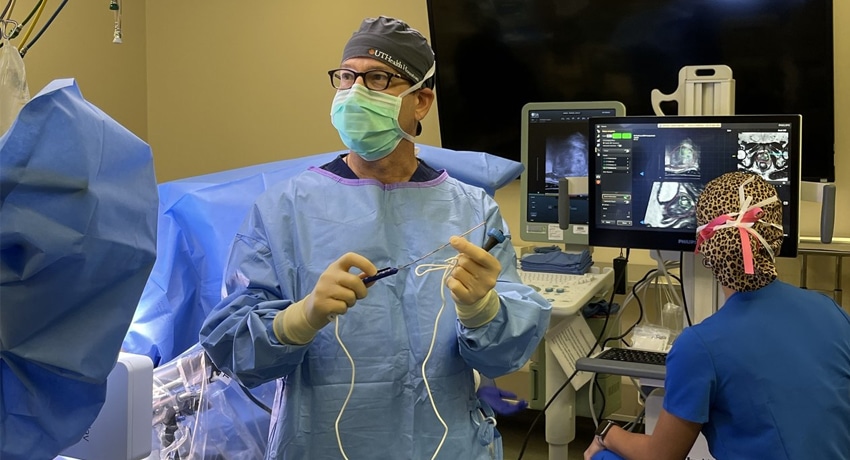One in eight men will be diagnosed with prostate cancer in his lifetime and 11 years ago, Morton McPhail, now 73, became one of them. Fortunately, time was on his side.
The prostate gland, found only in men, produces seminal fluid. Risk factors for prostate cancer include age (most cases are diagnosed in men over 65), family history, and inheriting a gene mutation. Having a father or brother with prostate cancer doubles the risk of developing the disease. Mutations of the BRCA1 or BRCA2 genes, linked to ovarian and breast cancer in some families, can also increase the risk of prostate cancer in men.
Prostate cancer is generally slow-growing and, if found early, can be successfully treated. The prostate-specific antigen test, or PSA, in combination with new techniques in magnetic resonance imaging (MRI), can diagnose early disease.
McPhail, whose father also had prostate cancer, had regular checkups and it paid off. After his less aggressive form of cancer was diagnosed, it was monitored until it grew to a size that required surgery. Standard treatment is a radical prostatectomy (complete removal of the prostate gland) that may come with side effects including urinary incontinence and erectile dysfunction.
But tissue-sparing treatments using focal therapy are now becoming available for prostate cancer patients. McPhail joined a first-of-its-kind clinical trial at UTHealth Houston led by Steven Canfield, MD, that used gold nanoparticles to seek out and infiltrate cancerous tissue, after which a light was applied through a laser to excite the particles and destroy the cancer. Canfield is professor and chief of the Division of Urology in the Department of Surgery at McGovern Medical School at UTHealth Houston and the C.R. Bard, Inc./Edward J. McGuire, MD, Distinguished Chair in Urology.
The surgery was successful, but the cancer appeared in a new area in the prostate two years later. Canfield told him about another focal-therapy treatment, this time using the NanoKnife System to place electrodes that destroy the targeted tissue with electrical pulses. McPhail, a former Houstonian who retired to the Hill Country, just completed the second procedure last month and is back to exercising and writing with academic colleagues.
“Better MRI imaging allows us to see the cancer inside the prostate, which allows us to treat the area instead of removing the entire prostate,” Canfield said. “Surgeons can insert a probe and treat the cancer with thermal ablation therapies. The newest techniques, like the NanoKnife system, use no heat at all, so there is little to no damage to the surrounding tissues.”
Canfield said focal-therapy treatments can be used when the cancer is only within the prostate and hasn’t spread, which is why early diagnosis is so important.
“It’s a relief to have these kinds of procedures,” McPhail said. “It turns prostate cancer into something you live with and are treated for instead of a life-altering event with side effects that can be dreadful. The risk of those side effects is very small with the focal procedures. And I am confident I won’t die from prostate cancer.”


